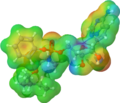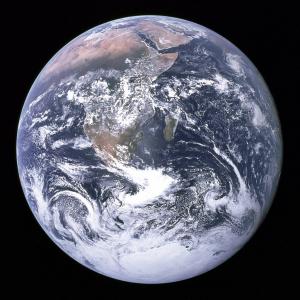 I have been meeting once a month over the past couple of years with a group of members from the church I attend. It is an early morning breakfast group that has been assembling for nearly fifty years to discuss issues that affect the church and the world of which it is a part. There are usually 10-15 people who come. It is billed as a “men’s breakfast,” but over the years our church has been ably lead by women pastors, as it is currently, so as these women have had the time and wherewithal, they have infiltrated the testosterone-laden diners. Although with the average age of the regulars being somewhere north of 65 years, the level of testosterone is decidedly low, I imagine.
I have been meeting once a month over the past couple of years with a group of members from the church I attend. It is an early morning breakfast group that has been assembling for nearly fifty years to discuss issues that affect the church and the world of which it is a part. There are usually 10-15 people who come. It is billed as a “men’s breakfast,” but over the years our church has been ably lead by women pastors, as it is currently, so as these women have had the time and wherewithal, they have infiltrated the testosterone-laden diners. Although with the average age of the regulars being somewhere north of 65 years, the level of testosterone is decidedly low, I imagine.
Yesterday, we discussed the raging pandemic fueled by the Novel Coronavirus- 19. To date, there are at least 100,000 known infected people in the world, and that number is surely far too low since testing has been spotty at best. Deaths, primarily among the elderly and immune-compromised, are running at 3% or so. In Los Angeles, the mood is cautious, as sporting events, concerts, and other large gatherings have been cancelled or postponed. You know this is a serious matter when Disneyland, the so-called “happiest place on earth,” closes for only the fourth time in its history. My very minor inconveniences to date include a cancelled LA Clippers-Dallas Mavericks NBA basketball game and a concert of the LA Philharmonic.
And, quite rightly, our church will not gather this Sunday or next as a physical community. Our sanctuary worship (we also feature another worshipping community in another space) includes many older persons, a few well into their 90’s, and they do not need to be exposed to a gathering of people who may be unaware of their exposure and infection. Thus, some of us will gather on-line at home and participate as we are able in worship. It will be an odd experience, I am sure, but one that is necessitated by these extraordinary circumstances. I imagine that many other churches across the country are scrambling in similar ways to worship virtually as that can be arranged.
There is, of course, something decidedly spooky about all this. LA traffic, that notoriously horrifying spectacle at all times of the day and night, has thinned noticeably as more and more Angelenoes hunker down in their own homes and try to wait out this silent and unseen microbial menace. And that fact of the mystery of the thing, that invisible and tiny bug, potentially alleviated only in part by vigorous hand-washing and copious infusions of sanitizer, is what breeds the worst of the panic that roils just below the surface of many human interactions: fear. Are you a carrier? Am I? How can we know? Uncertainty is the cauldron of fear, and fear is lurking in vast numbers of hearts.
We are not being helped by our political leaders, whose asinine glibness and heedless optimistic projections based on hunches and hopes do little to salve our dark uncertainties. We look to them in times of crisis to offer light in our shadows, facts in the face of our lack of knowledge, the sense that they have things in hand, that we can trust their handling of this dire situation. Unfortunately, with our current crop of government leaders, we find little if any of this reassurance. Rather, we hear half-truths, based on no science or factual analysis, while we need both science and fact. This administration has long ago surrendered science and fact to the whims of “political victory” and scape- goating of the enemy of the day. We will get no help from them, since they have proven wholly inept as we face the virus.
It is at times like this that we progressive religious believers become all too passive and silent. Unlike our conservative and fundamentalist colleagues, we cannot thunder on about “God’s judgment on sin” (pick whichever sin you like), or “the second coming of Jesus, presaged by plagues and other grievous signs.” We simply do not embrace those beliefs and find their announcement laughable, if not horrifying, painting a portrait of a God we do not recognize and surely one we cannot worship and follow. Yet, our faith should and must say something in the face of this crisis. Yesterday, at our breakfast meeting, I was struck by our collective inability to do so.
We skated around the question, reverting again and again to personal tales of our own struggles with the inconveniences of the time, rather than finding in the life of faith some word of assurance or comfort or hope. There were yesterday two ministers among us, I being one of those, and the conversation veered away from the theological at nearly every juncture. I would suggest that that diversion was indicative of just how hard it is for us to speak out of our faith to an experience like this one. And let me admit quite freely that even for the professional theologians among us—namely me!—it is no easy task. As I listened to my church friends bob and weave around the question, my mind went again to the Psalms, those ancient poems that Israel used through the centuries of their worship to sound the pain and fear that they felt as they faced the myriad disasters that confronted them as a tiny community surrounded by mighty powers they could never hope to defeat. For them survival was always the final concern as armies tramped through their land from every direction, as disease snatched their loved ones from them, as drought and famine decimated their crops and land over and again.
Yet, they sang like this:
God is our refuge and strength, a proven help in trouble.
As a result, we will not fear, though the earth should change, though its mountains shake in the heart of the sea;
though its waters roar and foam,
though the mountains tremble in tumult.
For Israel, the most solid and certain elements of their world were the mountains and the sea. The mountains were there long before Israel arrived in their land, and the sea had stretched beyond the horizon from the beginning of the creation. Still, they said, if those mountains began to shake, if those seas suddenly began to rage out of control, yet God remained a proven help, a refuge and a strength. How can a progressive, 21stcentury, scientific religious believer embrace such an image? We know all too well from our respected geologists that mountains shake due to tectonic plates, grating under and over one another in ceaseless motion far beneath our feet. We do not believe that God is shaking the earth for some divine purpose unknown to us. We know from our best oceanographers that the seas roar and foam because of forces beneath the waves, earthquakes miles below the waters, that force huge tsunamis to form and crash against our shores with unstoppable power. We do not believe that God forms tsunamis to right some human wrongs or to punish some human foible.
But in our knowledge we run a terrible risk of relegating our God to one of the gaps; what we cannot explain we leave to God, and as we explain more and more God is removed further and further from any significant place in our understanding of the universe. As we continue to claim control of all knowledge, God becomes a cipher, an antique figure valuable only for incoherent religious mumbling by the few, a subject of ridicule or disinterest by the many. I would suggest that our sense of full control is a false one, but that does not lead me to say that God is “in control.” I do not embrace the concept of “God Almighty.”
But I can and do say, “God is our refuge and strength, a proven help in trouble.” How can I say that, while I fully embrace the scientific worldview? Yes, the Coronavirus is a part of God’s world, a world of grit and pain, of hope and joy, of beauty and hope. The virus reminds us again, and we seem to need a constant reminder, that we humans are not in the center of creation. God has called all of us, plants, animals, humans, and even microbes, to a cosmos of wonder, mystery, and surprise. And there is death, and there is suffering, and there is pain. And there is beauty, and there is wonder, and there is joy. It is not finally ours to do with as we please, but it is God’s, the God who remains a refuge and help in the midst of all that. The world is far more than science; it is also poetry and a proclamation against any who would reduce it to a prolix and perfunctory series of facts. So, with my poetic gear fully engaged, I continue to proclaim that the Coronavirus is hardly the last word of the universe, hardly the harbinger of the end. The last word is God, the refuge and strength and help for those who turn themselves toward the vastly richer universe than one ruled only by science and only by fear. “Therefore, we will not fear,” we can and must say in the face of whatever crisis and disaster our world may conjure. Fear cannot be our last word in God’s world.
(Images from Wikimedia Commons)











